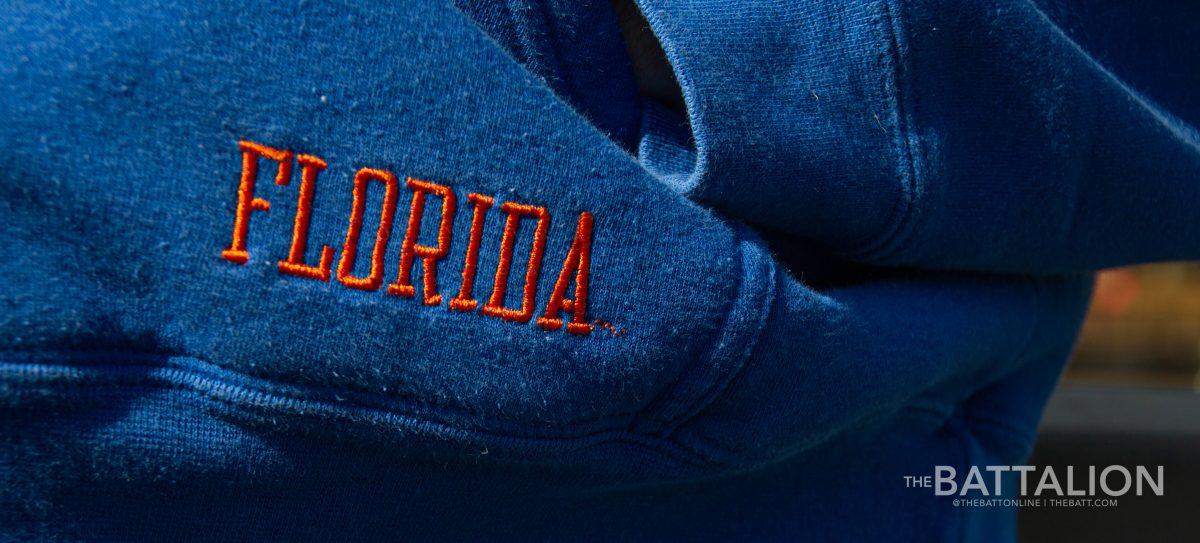Florida Man. The name carries hefty anticipation — virtually anything could follow. Take, for example, “Florida man insists syringes pulled from rectum aren’t his” or “Florida man once arrested for fighting drag queen with tiki torch runs for mayor.” Over the years, the term Florida Man has graduated from a simple description into something mythical — he haunts the Floridian streets performing bizarre acts which often feature his co-stars: alligators, drugs or alcohol. Or in many cases all three.
His infamy begs the question: who is Florida Man, and how did he garner this reputation?
Florida Man exists thanks to a number of factors, including Florida’s unique stance on public documents, demographics and ecosystem. The popularizing of the term “Florida Man” was followed by the stigma, and people are still discussing the moral implications wrought from the phrase’s infamy.
Florida Man was born in 2013 when the Twitter account @_FloridaMan began posting news articles with the phrase “Florida Man” in the headline. The account went viral, accumulating over 400,000 followers at its peak. The sensation reached a new peak when the “Florida Man Challenge” surfaced, in which participants Googled their birth date along with the phrase “Florida Man,” posting the results. For example, my Florida Man story is “Florida man threatens to kill neighbors with ‘kindness.’” I’ll save you the click: “He meant a machete-style knife he called ‘kindness.’” The trend gradually lost popularity, as trends are wont to do, and was soon replaced by other youthful activities like creating TikTok dances and eating Tide Pods.
Clearly, nutty people aren’t exclusive to Florida — wild headlines can crop up from all over the world, like “Texas man wanting to go ‘human hunting’ arrested for terroristic threat” and “Spanish Man Builds 60-Foot Spaceship To Visit Planet From His Novels.” Why is Florida Man the only one who has reached international acclaim?
This, in part, can be tied to the state’s freedom of information laws, often being entirely referred to as the Sunshine Law: a Floridian standard that allows anyone to access public records with little to no red tape. This includes documents like crime records and headshots. Other states make this process extremely convoluted or time consuming. The ease with which journalists can access these reports makes them an easy grab for lazy reporters.
Other factors are just Florida au-naturale; John Mulaney once called the state “The Costco of upsetting people … it’s just everything all at once.” Florida is the third-largest state in America; of its 21.1 million population, 1.1 million are convicted felons and 2.1 million have a concealed carry license.
Combine these demographics with lax gun laws, year-round heat and humidity — no off season for nudists or outdoor brawlers — crocodiles, burmese pythons and a myriad of drugs … headlines are basically guaranteed.
Like most heroes, Florida Man has fulfilled Harvey Dent’s prophecy, living long enough to go from “the world’s worst superhero” to a sort of misguided villain. Recently, the term has come under fire as a harmful stereotype. The Washington Post writes, “Florida Man is a microcosm of the way so many of us are struggling with the ethics of how to behave on the Internet, and how easily an ironic joke can begin to feel like freak-show mockery.”
The popularity of headlines and stories led to many Florida men having difficulty reacclimating after their arrest. What’s more, people began reveling in headlines that were less silly and more disturbing. Consider this Florida Man birthday website which features a story in which a man threatened and assaulted his teen daughter and her dog.
After witnessing this change, Freddie Campion,the face behind @_FloridaMan, retired the account, feeling that it was causing more harm than good. Campion said, “How much do I want to be a party to essentially making fun of people on the worst day of their lives, even if they have done something wrong? Like, who gave the Internet the right to add to someone’s punishment?”
Despite this, Florida Man’s pervasive stereotype has remained.
The next time you hear about a Florida man breaking into a home to suck on toes or getting attacked by a crocodile while wearing crocs, remember that it’s okay to laugh, but also take a measure of empathy to heart. We’re all a part of this crazy world together, and I think you’ll find that the Lone Star State and the Sunshine State have more in common than you’d think.
Charis Adkins is an English sophomore and opinion writer for The Battalion.
Analysis: Florida Man — a case study
June 7, 2022
Photo by Photo by Cameron Johnson
A man wears a University of Florida sweatshirt in Montgomery, Tex. on Monday, June 6, 2022.
0
Donate to The Battalion
Your donation will support the student journalists of Texas A&M University - College Station. Your contribution will allow us to purchase equipment and cover our annual website hosting costs.
More to Discover
About the Contributor

Charis Adkins, Opinion Editor
Charis Adkins is an English senior, Spanish minor and opinion editor for The Battalion. She plans to attend law school after graduating, anticipating a career in the Sports & Entertainment or Appellate / Appellate Writing fields. She is a former Greenpot (2022-23 season) in Student Bonfire and currently works as a legal assistant at Benn Law Group in College Station. She enjoys rock & metal music, the Three Stooges and learning Old English linguistics.









